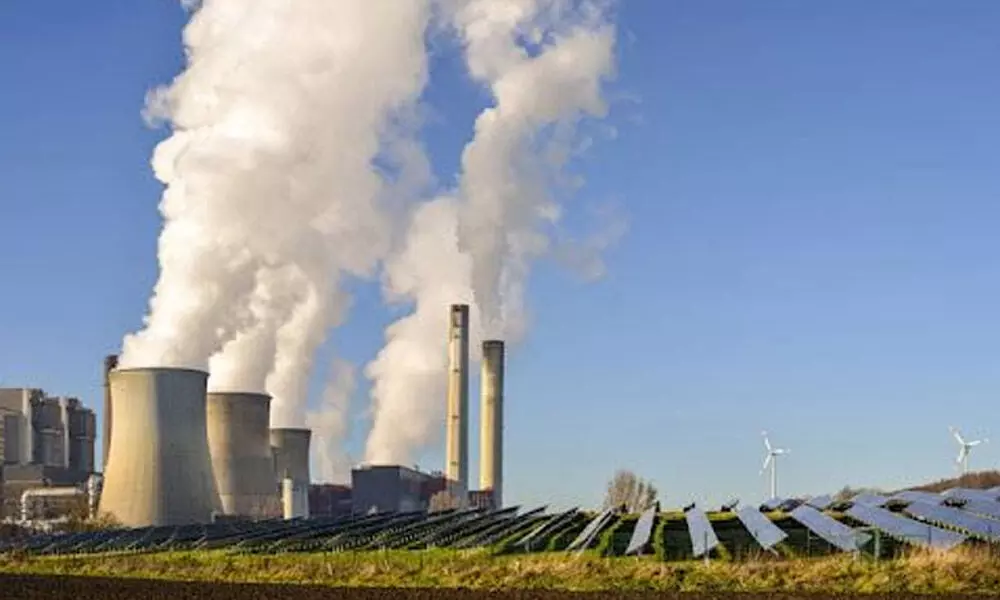Global energy crisis due to shortage, not climate activism
From the way some analysts have been talking lately, you’d think that energy markets obeyed some version of the butterfly effect, where flapping wings will determine the formation of tornadoes weeks later.
image for illustrative purpose

From the way some analysts have been talking lately, you'd think that energy markets obeyed some version of the butterfly effect, where flapping wings will determine the formation of tornadoes weeks later. Call it the BlackRock Inc. effect: Larry Fink needs only to whisper the words "ESG," and natural gas and coal markets will explode 21 months into the future.
"Europe's anti-carbon policies have created a fossil fuel shortage," the Wall Street Journal wrote in an editorial last month, arguing that climate policy was to blame for the current turmoil in energy markets, which has sent gas and coal to record prices.
"Political and regulatory resistance has darkened the future of fossil fuels," Ruchir Sharma, Morgan Stanley's chief global strategist, wrote in the Financial Times in August. "Even as oil prices rise, investment by the big hydrocarbon companies and countries continues to fall." If you're given to magical thinking, it's tempting to suppose that the most significant thing that's happened to the world economy since the start of 2020 has been the rising frequency of chief executives saying "ESG" on conference calls. (That tendency is absolutely a real thing.) Still, the better explanation for what's going on is staring us all in the face.
It's almost embarrassing to have to spell it out, but quite dramatic events have been taking place. Thanks to the Covid-19 pandemic, the global economy in 2020 suffered its deepest recession since the Second World War, and is currently experiencing its strongest rebound since the same date. West Texas Intermediate crude briefly changed hands for minus $40.32 a barrel last April. The same month, a 10th of the US labour force lost their jobs. In December, the pile of debt trading at negative yields climbed above $18 trillion.
Climate activists would no doubt love it if strongly worded investor letters and annual general meeting speeches had the power that skeptics appear to be attributing to them. What we're really seeing, though, are the more mundane dislocations of an economy that's suffered such dramatic changes. Energy is hardly the only sector affected. A shortage of semiconductors is causing the global auto industry to lose an estimated $210 billion in sales this year. The cost of moving a shipping container from Shanghai to Rotterdam has climbed to $14,807 from $1,142 in 2019. The price of used vehicles in the US was up by nearly a third from a year earlier in August. Passenger air traffic remains at less than half of its 2019 levels. Economies that shut swaths of their productive capacity to hunker down while the pandemic passed are awakening again, and the ride is anything but smooth. No one would suggest those trends, however, have anything to do with the number of times executives use the phrase "net zero."
In energy, the shifts have been especially dramatic. Last year began with Saudi Arabia and Russia locked in debate about how to kill off the US shale industry, before engaging in a rush of unconstrained supply, swiftly followed by sharp production cuts. At present, there is still a near-record 9 million daily barrels of spare production capacity being held off the market among the OPEC+ grouping alone, equivalent to about a 10th of the entire oil market.
If you're asking why capital investment in the petroleum industry has fallen drastically and is only just creeping back, there's your explanation: Oil majors and the US independents, which traditionally have accounted for more than one-third of oilfield spending, are holding off for fear that the next OPEC meeting will open the spigots and crush their projects again with crude from their own lower-cost wells. The spare capacity within OPEC+ will be enough to keep the world amply supplied until the middle of this decade, the International Energy Agency wrote in March: "Against this backdrop, it is hardly surprising that upstream investments and expansion plans have been scaled back."
Meanwhile, national oil companies with access to cheap reserves are showing little reluctance to build. Qatar in February signed off on the largest LNG project in history. Saudi Arabian Oil Co. is increasing its capital expenditure this year by about 30% to $35 billion, in line with the highest levels it's ever recorded.
That's clearly inconsistent with analysis such as the IEA's, arguing that there's no need for investment in additional fossil fuel supply to hit a goal of net zero emissions in 2050. If investors are growing more reluctant to finance fossil fuels, it's not because they want to put a green cover on their next annual report, but that they believe the business case for such investments is dimming.
The world is facing an energy deficit, to be sure - but the technology that will benefit from that shortfall is the one that can fill it most cheaply. In most cases, that is now renewable power. Don't blame rhetoric for the current travails of the fossil fuel industry. Blame economics. (Bloomberg)

